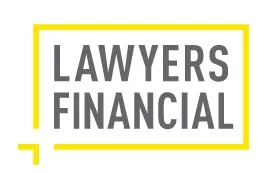The recent federal budget announcement of an increase of the capital gains inclusion rate to 66.67% from 50% on gains above $250,000 landed with a thud for anyone with a cottage. Some owners are selling before the proposed rule takes effect on June 25, 2024. But if you want the next generation to inherit the sunsets and call of the loon, it's a wake-up call to assess the tax implications for the people you love and look at options that will allow you to leave a legacy.
Under the deemed disposition rule, the CRA regards your vacation property as "sold at fair market value" when you die—whether your heirs sell it or not. Any net gain in value is reported on the final estate tax return. That's a big deal, especially if you've owned the property for a long time. That $30,000 cabin you bought in Port Renfrew, BC in 1986—a little haven from which to blast Trooper's "Here for a good time, not a long time"—might be worth half a million dollars today. The resulting tax bill might be high enough to force your heirs to take a figurative hike (by selling), instead of the literal hike you hoped would be their inheritance.
These types of considerations make it especially important for cottage owners (and cabin owners and ice hut owners) to consider if your overall estate will have enough cash available to pay those tax obligations and keep those vacation properties in the family.
PERMANENT VACATION
Permanent life insurance can be a cost-effective solution. The two basic types of life insurance are term and permanent. In this scenario, the better option is permanent because, well, it's permanent. By design, term insurance expires on a set date, and you may well outlive it. Permanent insurance is in force from the day you buy it until the day you die and pays your named beneficiary—which can be your estate—a tax-free lump sum that can pay off the capital gains liability on the cottage. This cash infusion also helps preserve the rest of your estate.
There are other advantages to permanent life insurance. Over time, the cash value of the policy grows on a tax-deferred basis. This cash value can be accessed through loans or withdrawals during the policyholder's lifetime, subject to certain conditions and potential tax implications. If the beneficiary is your estate, the death benefit is included in probate and can be used to pay any estate obligations, including other capital gains liabilities. But if the named beneficiary is an individual, say one of your heirs, the benefit is paid out directly, bypassing your estate and probate.
BOOK A FREE FINANCIAL PLANNING MEETING NOW
The content of this article is intended to provide a general guide to the subject matter. Specialist advice should be sought about your specific circumstances.


